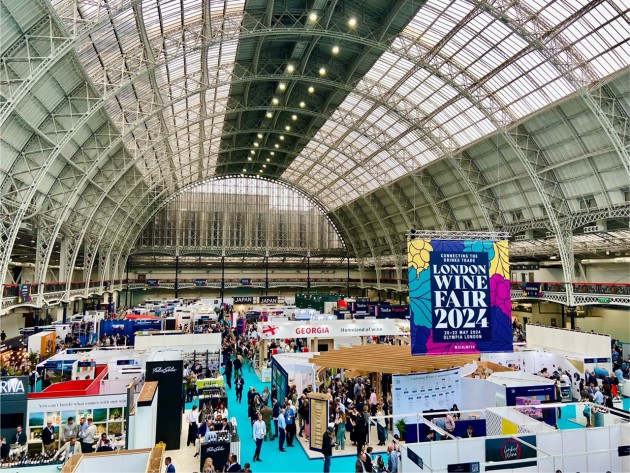
LWF: Is the UK a global hub or a ‘has been’?
‘Is the UK a wine hub or a has been?’ This was one of the more interesting questions posed at this week’s London Wine Fair (LWF).
The topic was the title of a session hosted by WSTA chief exec Miles Beale, which – despite the ominous header – was billed as a more positive space for conversation in contrast to an earlier State of the Nation address focused heavily on the challenges of the new duty scheme.
The consensus was that yes, the UK is still a highly important global hub for wine businesses, boasting a commercial landscape which is ripe for investment. It also remains a major market. It is still the world’s second largest importer of wine and represents 50% of global revenue for the likes of leading brand owner Australian Vintage.
Speaking in a post-Brexit context, Ed Baker, MD, Kingsland Drinks said: “Yes, we have made things more difficult for ourselves. But if you’re in a position where you’ve got a glut in your harvest, which market can suck up some of that excess? Often it’s the UK. We’re relatively price sensitive and relatively swift to react and therefore, we react well to market changes. We’re still first in and always up for a deal.”
Greg Malone is a partner at Arbion, a financial investment firm which launched Jera, an online platform which lends money against collections of fine wine (part of the Coterie Holdings portfolio).
He said: “More and more of the global wealth is becoming concentrated on a smaller number of people who are getting increasingly wealthy as technology advances. Globally, the UK is still one of the most tax advantageous places to be. [Individuals and businesses] tend to come back to the UK because it’s got great schools, great nightlife and great restaurants. From a tax and regulation, and legal point of view, it’s solid – you’re not going to have your assets stripped from you overnight. I don’t think the UK press necessarily helps, but when you’re outside the UK looking in, it’s still a great place to spend money and invest.”
However, the market is not without its challenges. Volumes under pressure, which are forecast to slow to +1% per year between 2022 and 2027 as consumers moderate and switch to other categories (IWSR figures).
In the words of Julian Dyer, COO at Australian Vintage, the question now becomes “How do we drive innovation and growth against that context?”
The panel’s collective answer leaned heavily into innovation. Dyer said there is a “Disconnect between older and young consumers. Boomers have gone from representing 42% to 48% of the wine category over the past five years, while millennials have slipped from 33% to 30%. That’s not good.”
In order to recruit the younger generation into the category, Australian Vintage has focused on those new consumers who are more promiscuous with their drinks choices, from beer and spirits to mixers and RTDs. In order to “bring them into the wine universe”, Dyer and his team have focused on cross-category innovation, as well as low & no.
This category has “a big future. Different pack formats will also have massive role to play as gatekeepers for low and zero products. Spritzers are going to come back,” he said.
So far, this seems to be paying off.
Five years ago, Australian Vintage had no alcohol free products in its portfolio. Now, it accounts for 0.5m cases in UK, mostly via McGuigan Zero and a new product Not Guilty.
He added: “30% of our profits now come from products that didn’t exist five years ago. Millennials want radical, breakthrough products.”
Robin Copestick, MD of Freixenet Copestick, also shared that the sparkling juggernaut has “launched 80 products between the off and on-trade in the past year, which is incredible”. This includes a new aperitivo from Prosecco brand Mionetto – a ‘normal strength’ iteration plus a 0% abv.
Baker also alluded to broader issues with government policy and decision-making which is based on a “lack of evidence”.
He said: “Over the past three years, we’ve seen a fourfold increase in the amount we’ve had to pay for recycling, with no benefit that I can see to the amount of product that is recycled in the UK or the infrastructure associated. It’s very hard for businesses to plan when decisions are made with no sense behind them.”
Overall, however, the panel agreed there are reasons to be cheerful about the UK industry.
While moderation is a key trend, the sector has “never been more exciting when it comes to innovation,” Dyer concluded. “We do need to recruit younger drinkers though, so we’re spending a lot of time focusing on bringing them in and getting them engaged.”








